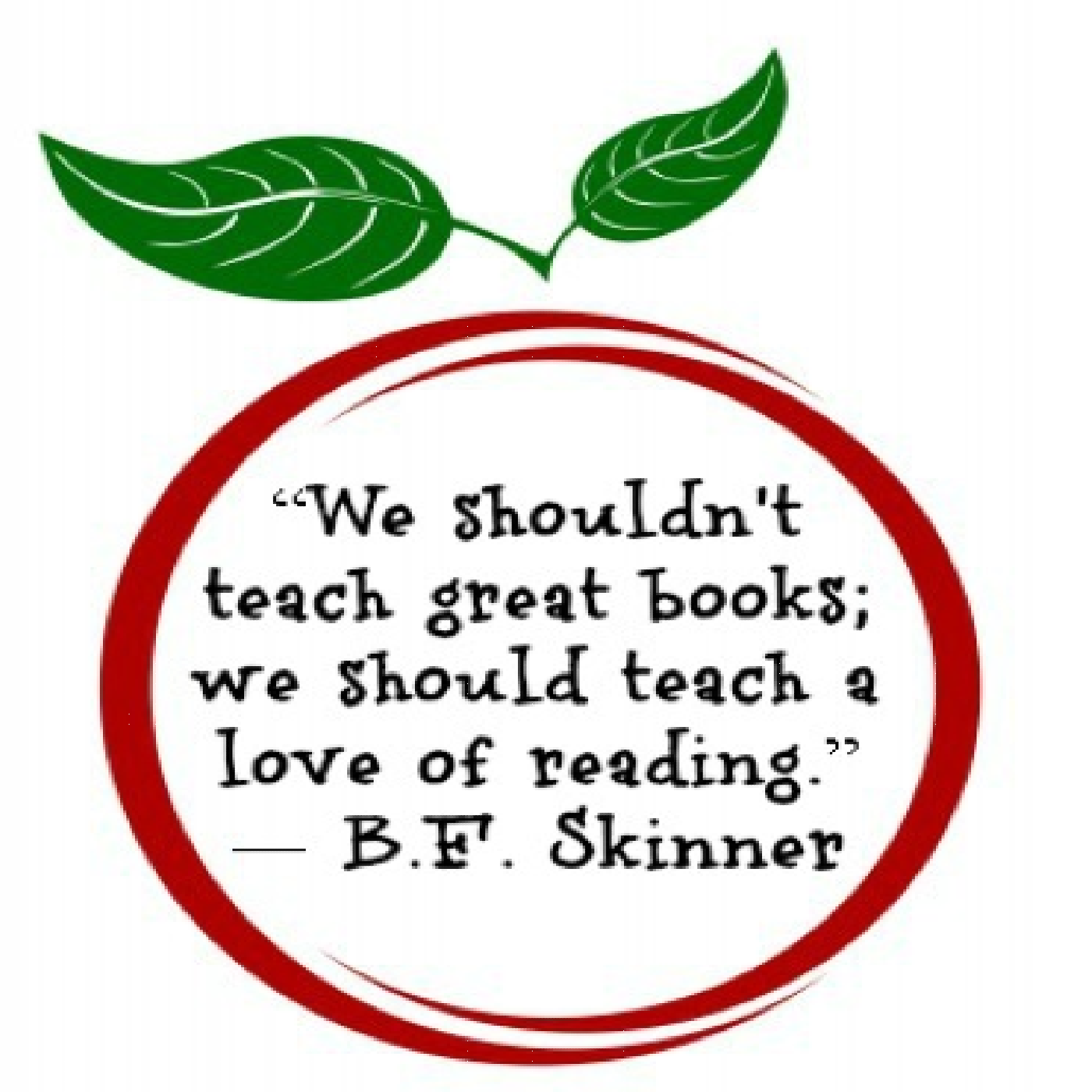
29.6K
Downloads
339
Episodes
The Chills at Will Podcast is a celebration of the visceral beauty of literature. This beauty will be examined through close reads of phrases and lines and passages from fiction and nonfiction that thrills the reader, so much so that he wants to read again and again to replicate that thrill. Each episode will focus on a different theme, such as "The Power of Flashback," "Understatement," "Cats in the Cradle," and "Chills at Will: Origin Story."
Episodes
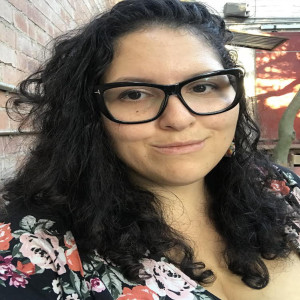
Tuesday Jul 06, 2021
Tuesday Jul 06, 2021
On Episode 65 of The Chills at Will Podcast, Pete has the pleasure to speak with Natalie Lima. The two discuss Natalie’s childhood, her relationship to language and the always-welcoming library, A Separate Peace, Song of Solomon, We the Animals, and other chill-inducing literature, the writers who have inspired her, and the inspirations behind some of her most well-known works.
Show Notes and Links to Natalie Lima’s Work
Natalie Lima's Personal Website
For a Good Time, Call,” essay for Guernica, September 2020
“Snowbound,” essay for Brevity, September 2019
“Men Paid Me To Eat,” fiction for The Offing, June 2019
“Fly”-Fiction from Paper Darts, May 2017
Talking Points/Authors/Books Mentioned and Allusions Referenced During the Episode:
At about 2:35, Natalie talks about influences growing up, including her experience speaking Spanish and her ideas of “home”
At about 4:50, Natalie talks about her relationship with the written word growing up and into adolescence, including her love of the public library
At about 6:50, Natalie discusses the pivotal high school reading years, including a favorite of Pete and Natalie’s, A Separate Peace by John Knowles
At about 10:40, Pete asks Natalie if she saw herself and her various cultures/subcultures in what she read growing up
At about 12:45, Natalie describes a few of her favorite books, including Cisneros’ The House on Mango Street and White Oleander by Janet Fitch
At about 13:35, Natalie outlines Song of Solomon and Toni Morrison’s impression on Natalie
At about 15:25, Natalie talks about contemporary writers who continue to thrill her, including Roxane Gay and her Bad Feminist and Justin Torres and his We the Animals, Myriam Gurba, Jhumpa Lahiri, T Kira Madden, Esmé Weijun Wang, Michelle Tea, Lindy West, Samantha Irby, and Jaquira Diaz
At about 20:10, Natalie details the moment(s) that made her believe in her ability to write professionally and successfully, including how Anne Lamott’s Bird by Bird and Julia Cameron’s The Right to Write helped her rekindle her writing passion and how her professor Colette Sartor gave feedback that energized Natalie
At about 28:35, Natalie discusses her target audience(s) and the success and how she was surprised how many people were moved by “Fat Girl Cries Herself to Sleep”
At about 30:45, Natalie talks about sharing personal information in her writing, as well as how certain works of her have affected her and her readers
At about 34:35, Natalie discusses “For a Good Time, Call,” her powerful essay about the “party line” and the essay’s many layers; Pete and Natalie make connections to teenage chaos/malaise and to an NPR article about avatars and Walter Thompson Hernández and Yesika Salgado on California Love
At about 42:35, Natalie discusses the background and events and writing of “Snowbound” from Brevity Magazine and the event where college dorm gossip upset Natalie
At about 49:25, Natalie discusses her fiction piece, “Men Paid Me to Eat” and its inspiration, including its genesis with a class writing prompt
At about 53:10, Natalie reads from “Snowbound” and “For a Good Time, Call”
At about 58:40, Natalie outlines her upcoming projects
You can now subscribe to the podcast on Apple Podcasts, and leave me a five-star review. You can also ask for the podcast by name using Alexa, and find the pod on Spotify and on Amazon Music. Follow me on IG, where I’m @chillsatwillpodcast, or on Twitter, where I’m @chillsatwillpo1. You can watch this episode and other episodes on The Chills at Will Podcast YouTube Channel. Please like, subscribe, and share while you’re there.
This is a passion project of mine, a DIY operation, and I’d love for your help in promoting what I’m convinced is a unique and spirited look at an often-ignored art form.
Be sure to check out the next episode on July 13 with poet extraordinaire Gabrielle Bates.
The intro song for The Chills at Will Podcast is “Wind Down” (Instrumental Version), and the other song played on this episode was “Hoops” (Instrumental)” by Matt Weidauer, and both songs are used through ArchesAudio.com.
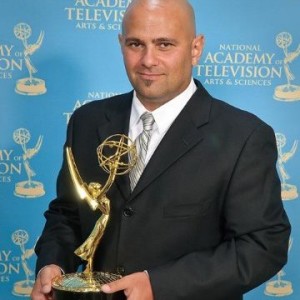
Tuesday Jun 29, 2021
Tuesday Jun 29, 2021
Show Notes and Links to Martin Khodabakshian’s Work and Allusions/Texts from Episode 64
On Episode 64, Pete welcomes Martin Khodabaskshian, an award-winning senior producer at ESPN. The two talk about the process of writing for the medium of television/documentary, Martin’s incredible work with E60 and 30 for 30, the craft of building tension/interest, some of his trademark stories, and what drives him to continue bringing profound and emotional stories to the screen.
30 for 30: War Eagle/Roll Tide Trailer
Star Wars, Evolution of the Lightsaber Duel from SC Presents on ESPN
Martin Khodabakshian’s IMDB Page
At about 4:45, Martin talks about his childhood and family history in Iran, London, and Minnesota, before coming to Jesuit High School, as well as his reading life in adolescence
At about 9:00, Martin talks about his language background, growing up with Armenian as his first language, and how he gravitated towards powerful storytellers in his family and English class
At about 13:30, Pete and Martin talk about great storytelling and how it draws people in, even if the subject matter does not seem to be an immediate hook, such as Strongman: Beyond the Mountain on E60
At about 19:30, Martin talks about the idea of “the big revealing” as a storytelling technique
At about 22:40, Pete and Martin talk about in medias res, and the similar idea of giving away the ending at the beginning; Martin gives examples of films that played with narrative like Pulp Fiction and ESPN’s documentary on wrestler Richard Jensen
At about 26:40, Martin talks about chill-inducing texts in his life, including Star Wars, Tom Rinaldi’s Red Bandanna, and “The Falling Man” by Tom Junod-Pete and Martin talk about the brilliance of the piece, and Martin about the passion that comes from working with incredible subjects and colleagues
At about 32:00, Pete talks about the phenomenon of remembering where you were when you read an influential piece
At about 33:00, Martin shouts out the influential teacher, Mr. Ed Trafton, and remembering the incredible experience of reading Catcher in the Rye
At about 37:30, Martin discusses the power of collaboration, as well as how difficult it can be at times to not take constructive criticism and input as personal
At about 41:05, Martin talks about his current duties and proper nomenclature for his job
At about 44:15, Martin shares his “origin story” about how he got into writing and producing and directing, with an assist from a UC Davis professor and his internship at KOVR 13 in Sacramento
At about 48:30, Martin explains his Roll Tide, War Eagle experience, as he made this documentary in award-winning fashion after working together on the self-funded Breathe
At about 54:50, Martin gives background on Silent Night Lights, the engaging film about California’s School for the Deaf’s powerhouse football team that was done virtually with dialogue or sound of any type
At about 1:02:45, Martin talks about upcoming projects, including follow-ups with Drew Robinson and work in promoting Black Widow and a story on the Moneymaker sisters, some of the most sought-after stuntwomen
At about 1:04:45, Martin gives a little tour of his cool awards and toys that he’s received through his work
You can now subscribe to the podcast on Apple Podcasts, and leave me a five-star review. You can also ask for the podcast by name using Alexa, and find the pod on Spotify and on Amazon Music. Follow me on IG, where I’m @chillsatwillpodcast, or on Twitter, where I’m @chillsatwillpo1.
This is a passion project of mine, a DIY operation, and I’d love for your help in promoting what I’m convinced is a unique and spirited look at an often-ignored art form.
The intro song for The Chills at Will Podcast is “Wind Down” (Instrumental Version), and the other song played on this episode was “Hoops” (Instrumental)” by Matt Weidauer, and both songs are used through ArchesAudio.com.

Tuesday Jun 22, 2021
Tuesday Jun 22, 2021
Show Notes and Links to Eric Nusbaum’s Work and Allusions/Texts from Episode 63
On Episode 63, Pete talks with Eric Nusbaum about his freelance writing for such publications as VICE, Sports Illustrated, and ESPN the Magazine. The two then talk in great detail about Eric’s powerful new book, Stealing Home: Los Angeles, the Dodgers, and the Lives Caught in Between, which deals with the communities forced to move to make room for Dodger Stadium. This discussion
Eric Nusbaum is a writer and former editor at VICE. His work has appeared in Sports Illustrated, ESPN the Magazine, The Daily Beast, Deadspin, and the Best American Sports Writing anthology. Born and raised in Los Angeles, he has also lived and worked in Mexico City, New York, and Seattle. He now lives in Tacoma, Washington with his family.
Buy Stealing Home: Los Angeles, the Dodgers, and the Lives Caught in Between (Bookshop.org)
Stealing Home Book and Eric Nusbaum Personal Website
August 2020 Eric Nusbaum NPR Interview about Book
At about 1:45, Eric talks about his early days writing for Deadspin
At about 3:00, Eric talks about his reading life as a child, living in a “print-rich environment” and reading local and legendary Los Angeles Times writers like Jim Murray and Bill Plaschke and Sports Illustrated for Kids and Sports Illustrated
At about 6:10, Eric discusses formative moments that led to him becoming a writer
At about 6:55, Eric discusses texts and writers that have given him “chills at will,” including the USA trilogy of John Dos Passos
At about 8:30, Eric details his Dodger fandom
At about 10:45, Eric traces his evolution into a professional writer; he recognizes some of his great and inspiring professors/teachers along the way, including Richard Kenney and Lou Matthews; he also references a huge building block in his writing life-his and Ted Walker and Patrick Dubuque’s baseball blog-Pitchers and Poets
At about 13:10, Eric describes the piece he wrote that was included in 2010’s The Best American Sports Writing-the essay was “The Death of a Pitcher”
At about 13:45, Eric discusses the balance between reading for a pleasure and reading with a critical eye
At about 15:00, Eric describes the “surreal” feeling of writing for magazines that he idolized as a kid
At about 16:25, a random note about language and “realizarse”
At about 17:00, Eric talks about his book Stealing Home and the importance of a descriptive subtitle
At about 18:00, Eric details how a school visit by Frank Wilkinson and other events started the wheels in motion for Eric to write and publish Stealing Home
At about 21:00, Eric outlines some background and history from the book, especially the three neighborhoods-La Loma, Bishop, and Palo Verde-that make up “Chavez Ravine”
At about 21:50, Eric explains ideas of trust, burden, trauma, and responsibility in making sure that he got the important story correct
At about 24:00, Eric talks about the research process and talking to family and friends of those involved in the book’s events/history, as well as reconstructing dialogue and events from the 1940s/50s, etc.
At about 27:00, Pete and Eric discuss the skillful ways in which Eric wove together so many apparently disparate stories-from that of General Santa Anna, Veracruz, MX, Abner Doubleday, etc.
At about 28:45, Eric details the myriad connections between the events of the book and today’s world
At about 29:50, Eric recounts the anecdotes that link baseball, its origins, and General Santa Anna
At about 32:20, Eric gives the rationale for his successful usage of 72 (!) chapters, mostly about “creating tension” and why he decided to avoid using academic-style footnotes
At about 34:20, Eric reads from page five, the last paragraph in the book’s Preface
At about 36:50, Eric and Pete discuss the relationship between sports fandom and the need to acknowledge how society’s inequities play out in sports as well-i.e., the shameful treatment of Colin Kaepernick, the shameful ways in which Dodger Stadium was built on others’ homes
At about 41:00, Pete and Eric discuss the shameful and racist histories often associated with early Los Angeles figures, many of whom are still memorialized today in street names, and in the book; Pete shouts out a book about 1900s LA-John Fante’s Ask the Dust
At about 43:00, Eric and Pete discuss the lack of salient villains in the book’s storyline, and Eric discusses his focus on people’s motivations in writing the book
At about 45:00, Eric talks about the complicated legacy of Frank Wilkinson
At about 49:00, Eric details the life in the three neighborhoods razed to make room for Dodger Stadium before the team even thought of moving them
At about 52:00, Eric reads the end of the book, focused on Abrana Aréchiga, the matriarch of the pioneering family, and a symbol of the neighborhood pre-Dodger Stadium
At about 54:25, reads from the last paragraph of Page 208, which serves as a wonderful summary of the myth of sport and its connection to the book
At about 56:00, Pete recounts some great recent books, like Eric’s, like Pete Croatto’s From Hang Time to Primetime: Business, Entertainment, and the Birth of the Modern-Day NBA and Bradford Pearson’s The Eagles of Heart Mountain: A True Story of Football, Incarceration, and Resistance in World War II America, that are not just about sports
You can now subscribe to the podcast on Apple Podcasts, and leave me a
five-star review. You can also ask for the podcast by name using Alexa, and find the pod on Spotify, Stitcher, and on Amazon Music. Follow me on IG, where I’m @chillsatwillpodcast, or on Twitter, where I’m @chillsatwillpo1. You can watch this episode and other episodes on YouTube-you can watch and subscribe to The Chills at Will Podcast Channel.
This is a passion project of mine, a DIY operation, and I’d love for your help in promoting what I’m convinced is a unique and spirited look at an often-ignored art form.
The intro song for The Chills at Will Podcast is “Wind Down” (Instrumental Version), and the other song played on this episode was “Hoops” (Instrumental)” by Matt Weidauer, and both songs are used through ArchesAudio.com.

Tuesday Jun 15, 2021
Tuesday Jun 15, 2021
On Episode 62 of The Chills at Will Podcast, Pete has the pleasure to speak with Donté Clark. Donté and Pete discuss Donte’s growing up in North Richmond, CA, his childhood memories-both beautiful and traumatic, his work in the movie Romeo is Bleeding, his poetry, his teaching, and his poetry collection, Close Caskets.
Donté Clark is a poet, actor, and community activist from unincorporated North Richmond, California who works with youth organizations throughout the Richmond area.
As a student in high school, Clark was recruited by his English teacher Molly Raynor who was founding a youth arts program, RAW Talent. Clark became the artistic lead of the program's first play, Té's Harmony, which examined local issues through the structure of Romeo and Juliet. The performance was introduced by poet Luis J. Rodriguez. The 2015 documentary Romeo Is Bleeding follows Clark in the process of writing and performing Té's Harmony.
In July 2014, Donté Clark and two others, Lincoln Bergman and Brenda Quintanilla, were made poets laureate of Richmond for a two year period. They were preceded as poet laureate by Dwayne Parish, and succeeded by Daniel Ari, Ciera-Jevai Gordon and Rob Lipton.
Clark's mentoring of the community's youth has led to some becoming mentors and teachers themselves, including poet and actor DeAndre Evans who appeared with Clark and Will Hartfield reciting poetry for a PBS story about housing in Richmond.
Clark has a supporting role in the 2016 film Kicks, the 2018 film Code Switch, and stars in the web series The North Pole.
Show Notes and Links to Donté Clark’s Work
Buy Donté ’s Close Caskets Here
The Creative Independent Interview with Donté by Ambrose Mary Gallagher
Close Caskets Interview with Richmond Pulse
Edutopia Article about Romeo is Bleeding
Donté Clark Discusses Romeo is Bleeding
Watch Romeo is Bleeding through YouTube
Donté performs his work, “Let Me Breathe” in 2014
Donté in Season 1, Episode 1 of Series The North Pole
Talking Points/Authors/Books Mentioned and Allusions Referenced During the Episode:
At about 2:50, Donté talks about Richmond, CA, and his background there, and how he sees it as a “small city” and its interconnectedness and history of families
At about 5:30, Donté talks about one of his poems “600 Banks Drive” and its connection to the innocent days of his childhood
At about 10:40, Donté talks about shifts in his life, where innocence was lessened through his middle school days and looking back at possible traumas, and how he felt forced to make adult/serious decisions at a young ages
At about 14:35, Donté talks about the idea of “growing up too fast” and “growing up backwards”
At about 17:30, Donté talks about the dynamics between certain parts of Richmond
At about 23:40, Donté talks about his poem “Bus Stop” and how “exhausting” life can often be when you have to be vigilant so much of the time and how this hypervigilance has impacted Donté in his later life
At about 28:20, Donté talks about how he got into the Renaissance Man life-being an actor, poet, performer, etc., when he had at one time, according to Romeo is Bleeding, wanted to “be the best dope dealer.”
At about 35:20, Pete asks Donté about chill-inducing writers, and Donté references several, including Amir Sulaiman, Tongo Eisen-Martin, Jesmyn Ward, Chinaka Hodge, Lauren Whitehead, and Molly Raynor
At about 39:45, Donté talks about Molly Raynor and how she gained his respect when he was 17 and how the two began working together
At about 47:50, Donté describes reactions from him and others when he did his first poetry performances and his thoughts on the subject matter and how when he’s teaching, checking in with students comes first
At about 54:25, Pete and Donté discuss some powerful lines from the documentary Romeo is Bleeding and Donte and “being in tune” with the words he reads and with the audience
At about 57:20, Donté discusses the Romeo and Juliet links to Romeo is Bleeding and the incredible feelings after presenting the work to an audience; he also talks about early casting
At about 1:06:40, Donté talks about Luis Rodriguez’s help and support for Romeo is Bleeding and Donté’s work as Poet Laureate of Richmond
At about 1:14:25, Donté talks about some of his acting work, including The North Pole YouTube series
At about 1:16:55, Donté explains the meanings and background of the title of his poetry collection, Close Caskets, as well as how Karla Brundage and Pacific Raven Press became the publishers
At about 1:20:00, Pete reads an excerpt of the poetry collection’s foreword from Dr. Khalid White
At about 1:24:00, Pete and Donté discuss themes from the poetry collection, including loss, poverty, hunger, as seen in “33 Reasons,” “Gimme,” “Today, I…”
At about 1:26:25. Donté talks about the poem “Orgy” and its inspiration from the history of white America’s obsession with and violation of black bodies, as well as from the murder of George Floyd and the slow and public way in which he was killed
At about 1:32:40, Donté connects “Orgy” to some of his other work and discusses the deep-seat racism that exists
At about 1:35:05, Donté discusses the rationale behind the form, style, and structure in some of his poetry, including in “Before Becoming,” “Hell is All I Know,” and “The Math”
At about 1:38:50, Donté reads his poem from Close Caskets-“Studying Don’t Solve Sorrows”
At about 1:41:00, Donté reads his poem from Close Caskets-“Today, I”
At about 1:43:30, Donté reads “Blessed Be”-his poem from Close Caskets
At about 1:44:20, Donté talks about his future ideas and projects

Tuesday Jun 08, 2021
Tuesday Jun 08, 2021
Show Notes and Links to Dave Croatto’s Work
On Episode 61, Pete is honored to talk with Dave Croatto about writing for The Onion, Mad Magazine, and many other publications. Dave talks about the freelance writing life, his literary and comedy influences, and what makes good humor writing.
Dave Croatto is a freelance writer who has contributed to Mad Magazine, The Onion, The New Yorker, and many other publications.
The Onion article from 2008-“Al Gore Places Infant Son In Rocket To Escape Dying Planet”
Buy Dave Croatto’s Books on Amazon
Dave Croatto’s Mad Magazine Page with Links
At about 2:10, Dave talks about his childhood reading loves, particularly comic strips, and later, authors like Dave Barry
At about 5:00, Pete uses an anecdote about a Simpsons episode to ask Dave about how he looks at “childish” and adult humor as he has gotten older and watched his son confront the humor
At about 7:00, Dave talks about his connections and background in appreciating and absorbing and mimicking comics
At about 8:10, Dave talks about his reading interests as a kid
At about 10:40, Dave talks about comedy and “punching up and down”/mean spirited humor; he talks about wanting to “laugh with” and not “laugh at”
At about 13:30, Pete and Dave talk about satire and irony in the current era
At about 14:30, Dave talks about the feeling a person gets, the “high” he has gotten when people are enjoying his laughter and the encouragement he received to keep doing humor,
At about 16:50, Dave talks about his work for Mad Magazine, including his start as an intern as a college freshman
At about 18:10, Dave talks about the experience of editing in the humor writing world and Mad Magazine’s ethic/philosophy-he calls the publication “the fun uncle”
At about 24:20, Dave talks about his experience writing for the vaunted The Onion, including his contribution- article from 2008-“Al Gore Places Infant Son In Rocket To Escape Dying Planet”
At about 30:30, Dave talks about the times when
At about 32:45, Dave talks about The Onion and its serious headline and article that has come around gun violence and its work after 9/11
At about 33:30, Dave talks about his writing for children, particularly superhero-themed work
At about 34:10, Dave talks about being published in The New Yorker
At about 36:30, Dave talks about his TGIF Friday’s parody for Mad Magazine and his Batman/Joker work in The Bystander
At about 39:35, Dave talks about shows and humorists he enjoys in 2021-including John Mulaney, Desus & Mero, Bob’s Burgers, and Drunk History
At about 43:00, Dave talks about the balance between art and commerce in doing his work, as well as future projects
If you have enjoyed The Chills at Will Podcast, go to Apple Podcasts to leave me a nice review, and subscribe, subscribe, subscribe!
You can also ask for the podcast by name using Alexa, and find the pod on Spotify, Stitcher, and on Amazon Music. Also, The Chills at Will Podcast YouTube Channel has this episode and other episodes-please subscribe to my channel. Follow me on IG, where I’m @chillsatwillpodcast, or on Twitter, where I’m @chillsatwillpo1.
This is a passion project of mine, a DIY operation, and I’d love for your help in promoting what I’m convinced is a unique and spirited look at an often-ignored art form.
The intro song for The Chills at Will Podcast is “Wind Down” (Instrumental Version), and the other song played on this episode was “Hoops” (Instrumental)” by Matt Weidauer, and both songs are used through ArchesAudio.com.
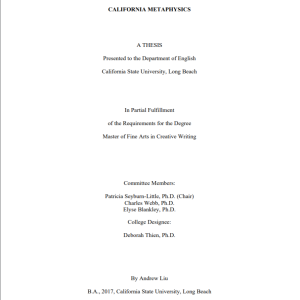
Tuesday Jun 01, 2021
Tuesday Jun 01, 2021
On Episode 60 of The Chills at Will Podcast, Pete has the pleasure to speak with the talented writer Andrew Liu. The two talk about Andrew’s poetry, which is multifaceted and inspired by so many disparate people and art and experiences and traditions. Andrew speaks to both the cerebral and emotional in his poetry and its connections to the idea of the muse, the Kaguya tradition, writing about paradox, and so much more.
Andrew Liu is a 2020 MFA graduate of CSU Long Beach’s Creative Writing - Poetry program. He is published in two student magazines: East Los Angeles City College’s Milestone and CSU Long Beach’s Riprap. You can read his MFA thesis, California Metaphysics, which collects some of his best poems, on CSULB’s thesis database (https://www.proquest.com/docview/2455809945/C36DDE5A65C748F1PQ/1). You can also view a recording of a virtual reading of selected poems organized by Andrew Liu and his friend Jesse Tovar on Youtube: https://youtu.be/duw83IwH5fk.
Show Notes and Links to Andrew Liu’s Work
Andrew Liu’s Cal State Long Beach Thesis-California Metaphysics
Andrew performs on Jan 8, 2021: My Place Cafe Events
At about 3:15, Andrew talks about growing up in the San Gabriel Valley, learning English as a second language, and the eventual eclipsing of Taiwanese by English; he also talks about his “contentious” relationship with languages and the precarious Taiwanese
At about 9:45, Andrew talks about his linguistic history and how it might affect his writing; in addition, this leads to his discussion of language as a barrier and an enhancer of imagery
At about 12:00, Andrew hones in on how he saw himself as a poet through his varied interests as a child, as well as through help from Ms. Burkhart and the YAWP (Young Aspiring Writers Program)
At about 13:30, Andrew discusses writers who have given him “chills at will,” including Edgar Lee Masters, whose work connected to Andrew’s ruminations on identity
At about 17:30, Andrew comments on the times at which when he saw himself apply the form to the imagination, including community college as an freeing and formative experience
At about 22:00, Andrew talks about the hierarchy of “manly” vs. “unmanly,” gay vs. straight, childhish vs. “grown up” and how his work plays on these opposites
At about 27:00, Andrew talks about the tropes of the “manchild” and the patriarchal control that shrugs and says, “boys will be boys” and how he writes to combat these as forms of protest
At about 30:00, Andrew talks about writing in the “surreal” time of Trumpism
At about 31:00, Andrews draws connections between childhood and adulthood, and his view of the fluidity of the two
At about 32:25, Andrew talks about the search for his writer’s autonomy and a transformational experience in hearing a high school classmate’s commanding performance, as well as his response poem in 12th grade in a “classics slam” to Ha Jin’s poem, “Ways of Talking”
At about 36:00, Andrew discusses inspirations for his thesis poetry collection-”California Metaphysics”
At about 39:00, Andrew talks about muses in his writing, particularly the problematic ways in which it is often used
At about 41:00, Andrew talks about his appreciation of Kaguya, particularly The Tale of the Princess Kaguya and the triumphs, resolve, and tragedies of Princess Kaguya; he connects the passivity and activity of the princess and its connection to his view of the muse
At about 44:15, Andrews reads an excerpt from “Ossified Landscape w/ Faceless Girl, alt. Kaguya”
At about 46:30, Pete and Andrew discuss the idea of Takahata and others “interpreting” the traditional and ancient Kaguya storyline, and Andrew talks about his concerted use of parentheses in his poem
At about 52:05, Pete and Andrew discuss The Eternal Sunshine of the Mind, and its role as one of Andrew’s favorite movies and connections to Andrew’s work, specifically “Ossified Landscape…”
At about 54:40, Pete details craft successes from Andrew and asks Andrew for feedback; Andrew discusses erasure and identity and the ephemerality, with regard to the two movies mentioned above, as well as Jeremy Renner’s Arrival, based on Ted Chiang’s short story “Story of your Life”
At about 1:03:00, Andrew talks about ephemerality as seen in art, as well as his use of the moon as a symbol in his work
At about 1:07:55, Andrew connects the “paradise myth” to Danez Smith’s epic poem, “summer, somewhere”
At about 1:09:00, Pete and Andrew discuss Andrew’s poem “ ‘C’ for California” after Andrew reads it; Andrew talks about the poem as part of the academic tradition of poetry and the influence of Stand Up Poetry, pioneered by Andrew’s Cal State Long Beach mentor, Charles Harper Webb; the conversation then delves into nature’s connections to Andrew’s and other literature
At about 1:22:15, Andrew talks about future projects and the potential for his thesis
You can now subscribe to the podcast on Apple Podcasts, and leave me a five-star review. You can also ask for the podcast by name using Alexa, and find the pod on Spotify, Stitcher, and Amazon Music. Follow me on IG, where I’m @chillsatwillpodcast, or on Twitter, where I’m @chillsatwillpo1. This episode and other episodes are featured on “The Chills at Will Podcast” YouTube Channel.
This is a passion project of mine, a DIY operation, and I’d love for your help in promoting what I’m convinced is a unique and spirited look at an often-ignored art form.
The intro song for The Chills at Will Podcast is “Wind Down” (Instrumental Version), and the other song played on this episode is “Hoops” (Instrumental)” by Matt Weidauer, and both songs are used through ArchesAudio.com.
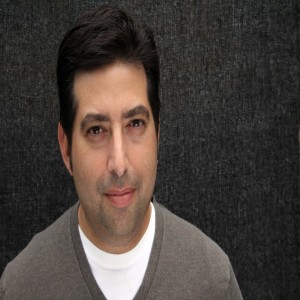
Tuesday May 25, 2021
Tuesday May 25, 2021
Show Notes and Links to Tod Goldberg’s Work and Allusions/Texts from Episode 59
On Episode 59, Pete talks with Tod Goldberg about his influences, his literary family, and his incredible run of commercially-successful and critically-acclaimed crime fiction. The two discuss all kinds of fun topics, from the singular settings that are part of his writing-The Salton Sea, Palm Springs, among others-Tod’s research for such compelling and sometimes-despicable characters, crime fiction as a genre, and themes fleshed out in Tod’s work. Much of the conversation revolves around Tod’s most-recent publication, the stellar short story collection, The Low Desert.
Also, Pete toes the line between just-the-right-number and too many Godfather/Mario Puzo references.
TOD GOLDBERG is the author of more than a dozen books, including Gangsterland, a finalist for the Hammett Prize; The House of Secrets, which he coauthored with Brad Meltzer; and the crime-tinged novels Living Dead Girl, a finalist for the Los Angeles Times Book Prize, and Fake Liar Cheat, plus five novels in the popular Burn Notice series. He is also the author of the story collection Simplify, a 2006 finalist for the SCIBA Award for Fiction and winner of the Other Voices Short Story Collection Prize, and Other Resort Cities. His essays, journalism, and criticism have appeared in many publications, including the Los Angeles Times, The Wall Street Journal, Los Angeles Review of Books, Las Vegas Weekly, and Best American Essays, among many others, and have won five Nevada Press Association Awards. He lives in Indio, California, where he directs the Low Residency MFA in Creative Writing & Writing for the Performing Arts at the University of California, Riverside.
Buy The Low Desert by Tod Goldberg
Buy any of Tod Goldberg’s Work Here!
Los Angeles Times Book Review of The Low Desert
Starred Review of The Low Desert from Publishers Weekly
Tod Goldberg’s Burn Notice Book Series
At about 4:35, Tod talks about the differences in publishing a book during the pandemic, as well as the future of the traditional book tour
At about 6:25, Tod talks about his childhood relationship with the written word and his family business of writing
At about 9:25, Tod talks about writing that has given him “chills at will”-The Maltese Falcon, “Diving into the Wreck” by Adrienne Rich, and “The Concord Hymn” by Ralph Emerson are mentioned (Tod recites the Emerson at 9:15-impressive!)
At about 12:35, Tod talks about how his childhood dyslexia affected his learning style and the effects of the time period on his later life, including the ways in which he still sees the connection between sound and rhythm
At about 15:20, Tod talks about how he saw writing as a path forward in his formative years, including Ms. Kaine, his teacher, giving him great encouragement and alternative assignments that helped him to improve his skills
At about 19:30, Tod talks about his early novels and the success that came particularly with his second novel, Living Dead Girl
At about 21:15, Pete talks about Mario Puzo’s balancing act between commerce and art and the assumption by many that he had to have had a background in Mafia life to have written about it so expertly; Tod then discusses his research into/relationship with the often scary and immoral/amoral characters of his books, including the formative experience of watching a horrific boxing match that ended in a death and the sordid history of Palm Springs
At about 25:40, Tod meditates on whether or not being labeled a “crime writer” is appropriate/desired for him, and uses Dennis Lehane’s history as a crime novelist as a an example of the genre’s freedom
At about 26:40, Tod shouts out the incredible book by Steph Cha, Your House Will Pay, and its connection to genre
At about 29:40, Tod and Pete discuss the way in which Tod “populates a universe” with repeat characters in his various books
At about 31:00, Tod discusses the importance of the place in his work, including The Salton Sea
and its interesting history
At about 36:25, Tod and Pete talk about themes of identity and new beginnings/redemption, particularly through the character of Morris, Blake Webster (“Goon Number #4”-written in response to an entreaty by the great Lawrence Block), and Jacob Soboroff
At about 42:20, Tod explains how the story “The Spare” serves as a pivot point for the Cupertine saga
At about 44:40, Pete and Tod talk about the ironically beautiful last scene of “The Spare,” and its similarities to podcast godfather Tobias Wolff’s “Bullet in the Brain” and how the author creates feelings of empathy for characters you wouldn’t normally feel for
At about 46:15, Tod discusses the pivotal and memorable character of Tanya in Low Desert and the ordinariness of evil, as seen in his short story collection and in the contemporary world
At about 50:25, Tod discusses themes of faith and fate in his writing and what/who
At about 55:20, Tod and Pete discuss themes of death and morality and “the world passing us by”
At about 59:55, Tod introduces and reads the story “Palm Springs”-page 73 of The Low Desert
At about 1:04:40, Tod talks about future projects, including Gangsterland, the tv version,
At about 1:05:35, Tod talks about his April 2021 appearance at The LA Times Book Festival-video can be found here
You can now subscribe to the podcast on Apple Podcasts, and leave me a
five-star review. You can also ask for the podcast by name using Alexa, and find the pod on Spotify, Stitcher, and on Amazon Music. Follow me on IG, where I’m @chillsatwillpodcast, or on Twitter, where I’m @chillsatwillpo1. You can find this episode and other episodes on “The Chills at Will Podcast” YouTube Channel.
This is a passion project of mine, a DIY operation, and I’d love for your help in promoting what I’m convinced is a unique and spirited look at an often-ignored art form.
The intro song for The Chills at Will Podcast is “Wind Down” (Instrumental Version), and the other song played on this episode was “Hoops” (Instrumental)” by Matt Weidauer, and both songs are used through ArchesAudio.com.

Tuesday May 18, 2021
Tuesday May 18, 2021
On Episode 58, Pete is thrilled to speak with friend, former colleague, and comedy writer and actor with The Groundlings, Michael Aspinwall. Mike and Pete talk about Mike’s formative years involving comedy, his inspirations, his days with The Groundlings, what he looks for in good comedy writing, his incredible run on WWE as Dr. Shelby, and some of his own writing and writing process.
Michael Aspinwall was inspired to move to Los Angeles and become an actor after a very successful performance in a Paris Gibson Middle School play entitled Tied to the Tracks in his home town of Great Falls, Montana. Many of his mom’s friends said he was good, and Michael took them seriously. He went on to high school where he really fell in love with theatre, which further solidified his desire to act, direct, and write professionally, while simultaneously solidifying his social position in the caste system that is high school.
Michael attended UCLA’s School of Theatre, Film, and Television, and while there, he studied performance primarily, in John Hall’s Musical Theatre Workshop. He appeared in John’s productions of Andrew Lippa’s The Wild Party and West Side Story (not by Andrew Lippa). He was the 2004 recipient of the Carol Burnett Award for Outstanding Male Performer.
In 2005, Michael earned his Master’s degree from UCLA’s TFT under the guidance of Dr. Pat Harter. He created a program that paralleled the California Arts Bridge program, using theatre and art to help younger students access the core curricula.
After college, Michael began his career as an actor by waiting tables at the Bubba Gump Shrimp Company, where he performed Forrest Gump themed trivia nightly, and acted as though he cared about whether the temperature of the guests’ fare was to their liking. He worked a slew of odd jobs, became a certified yoga teacher and a credentialed high school English teacher, and eventually found his home as an actor at The Groundlings’ Theater in Hollywood.
Michael found The Groundlings at a moment when the LA audition process was taking its toll. That place and the people in it breathed life back into a ten-year-old kid who used to stay up to watch SNL, then perform Mike Myers’s bits in front of his fourth grade class. At The Groundlings, Michael met his sketch group, Big Boss Comedy, and a slew of other mind-blowingly talented people he gets to call his friends.
Since his turn in the Groundling’s Sunday Company, Michael continues to write and produce original work with his writing partner and fellow Sunday Company Alum, Patric Cagle. He has toured Southern California with Kevin Broberg’s Quote/Unquote show, was a featured performer at Chicago Sketch Fest 2014 with Big Boss Comedy, and he appeared on television as WWE’s anger management specialist, Dr. Shelby.
Allusions and References from Episode 58
At about 3:20, Mike talks his early influences, including his hilarious father and his lifelong love for Saturday Night Live
At about 6:45, Mike talks about his early forays into writing comedy sketches
At about 8:00, Mike talks about his early innocent humor and how he realized the pull of dark comedy, too
At about 9:20, Mike talks about early comedy influences
At about 10:15, Mike talks about observational humor and its draw
At about 11:50, Mike talks about gratuitous humor, lowbrow humor, and different kinds of comedy
At about 13:30, Mike discusses crafting a joke without making people think about it too much, thereby lessening the humor
At about 14:45, Mike recounts the story of a “eureka” moment when he felt much more confident that he could do comedy work-the “oasis” that was The Groundlings-with a story involving the great Mikey Day
At about 18:45, Mike talks about his comedy training at The Groundlings
At about 20:00, Mike uses the example of an everyday observation through a Trader Joe’s trip as an an illustration of comic voice and tone
At about 24:45, Mike talks about taking reactions to autobiographical comedy “personally,” and the gift of “sitting in silence,” and being resolute in one’s comedy, as seen with friends and colleagues Allison Dunbar and Stephanie Allynne
At about 28:20, Mike shouts out some of his favorite comedy writers, like Tina Fey and Jordan Peele, Danny McBride
At about 30:35, Mike and Pete discuss the comedy ethic of “punching up, not down”
At about 33:00, Mike helps out Pete, who has always wondered what exactly it means that “the writing is so good” in a tv show, etc.
At about 36:00, Mike talks about his thrilling run as Dr. Shelby on WWE
At about 40:45, Mike talks about the incredible adrenaline rush involved in taking part in WWE
At about 43:20, Mike talks about the later iteration of Dr. Shelby, including his being immortalized as a meme
At about 46:00, Mike talks about the video for Funny or Die that he performed in and wrote-“Baby, It’s Cold Outside”
At about 49:30, Mike talks about the sketch that he wrote that plays off the questionable lyrics of “Alone,” covered by multiple artists
At about 54:50, Mike talks about whether or not some laughs are undesirable and problematic, and how he likes “losing people at the turn” in the sketches he writes
At about 57:50, Mike reads from his storytelling piece, “Surprises are Foolish Things,” and he also discusses some of the background of the piece
At about 1:09:15, Mike discusses upcoming creative projects
You can now subscribe to the podcast on Apple Podcasts, and leave me a five-star review. You can also ask for the podcast by name using Alexa, and find the pod on Stitcher, Spotify, and on Amazon Music. Follow me on IG, where I’m @chillsatwillpodcast, or on Twitter, where I’m @chillsatwillpo1.
This is a passion project of mine, a DIY operation, and I’d love for your help in promoting what I’m convinced is a unique and spirited look at an often-ignored art form.
The intro song for The Chills at Will Podcast is “Wind Down” (Instrumental Version), and the other song played on this episode was “Hoops” (Instrumental)” by Matt Weidauer, and both songs are used through ArchesAudio.com.

Tuesday May 11, 2021
Tuesday May 11, 2021
Show Notes and Links to Chaya Bhuvaneswar’s Work and Allusions/Texts from Episode 57
On Episode 57, Pete welcomes Chaya Bhuvaneswar, the brilliant craftswoman of White Dancing Elephants, the award-winning short story collection. Pete and Chaya talk about inspiring writers, Chaya’s influences and great mentorship from legendary writers, her diverse and not-so diverse experiences growing up in Queens, the ways in which her writing has been informed by her knowledge of religious texts, themes in her short story collection, the power of second-person narration, and much more.
Chaya Bhuvaneswar is a practicing physician and writer whose story collection WHITE DANCING ELEPHANTS was a 2019 finalist for the PEN/ American Bingham Debut Fiction Prize. Her work has appeared or is forthcoming in Narrative Magazine, Tin House, Electric Lit, The Rumpus, The Millions, Michigan Quarterly Review, and elsewhere. Her poetry and prose juxtapose Hindu epics, other myths and histories, and the survival of sexual harassment and racialized sexual violence by diverse women of color. Her book received coverage on the LA Times books section front page, NPR and other national outlets, and is available for purchase at bookshop.org, Amazon,org or your local indie bookstore!
Buy Chaya Bhuvaneswar's White Dancing Elephants (Bookshop)
Buy Chaya Bhuvaneswar's White Dancing Elephants (Amazon)
NPR Article Reviewing Chaya’s White Dancing Elephants
Starred Review in Kirkus for White Dancing Elephants
At around 3:00, Chaya talks about her influences growing up-including her upbringing in Flushing, Queens, and its racial diversity that was in contrast to her high school’s lack thereof; she also talks about how growing up in an environment rich with exposure to Buddhism and Hinduism shaped her
At around 9:00, talks about the writers, including Min Jin Lee and Victor LaValle, who have explored the “distance” between growing up in racially and ethnically-diverse neighborhoods and attending schools lacking that diversity
At around 10:50, Chaya talks about how the religious texts she was exposed to as a kid informed her writing and worldview, and how the Amar Chitra Katha series of comics was influential in her future storytelling
At around 15:30, Chaya talks about the balance between enjoying the wonderful epics and tales of India, such as Kathasaritsagara, and avoiding them being used for nationalistic and discriminatory purposes
At around 17:10, Chaya talks about Edward Said’s Orientalism and its connection to the caste system of India, especially with regards to how the British “gave weight to ancient ideas” about India
At around 22:30, Chaya talks about her “ideal reader” as one of conscience and awareness
At around 23:25, Chaya talks about being multilingual and how her ability to read and/or write other languages have informed her reading and writing styles
At around 25:25, Chaya talks about her study of Sanskrit, and its connection to discussions around
At around 28:40, talks about the texts and writers who have given her “chills at will,” including Toni Morrison, Louise Erdrich, Italo Calvino, Gabriel Garcia Marquez, Jericho Brown, Diana Khoi Nguyen, Evie Shockley, Vanessa Angelica Villarreal, Nicole Sealey, and Maggie Smith (particularly for her “Good Bones”)
At around 34:00, Chaya reads an excerpt from “Good Bones”
At around 34:45, Chaya talks about her appreciation for Seamus Heaney
At around 36:45, Pete and Chaya exchange Louise Erdrich recommendations, including “The Painted Drum” and “The Red Convertible”
At around 38:45, Chaya talks about her medical background and how her outlook has changed through working as a psychiatrist, especially during this pandemic; she references another brilliant writer/medical professional, Nawal El Saadawi, and how her treatment in the press is emblematic of clumsiness in treatment of non-white women who are doctors and writers
At around 44:30, we have an ad from friends of The Chills at Will Podcast,Get Lit Podcast
At around 47:40, Chaya talks about how she caught the writing bug and how she learned that she was a skilled writer; she also talks about inspiration from the great Ved Mehta, whom she recently wrote about for LitHub, Seamus Heaney, Salman Rushdie, and Wole Soyinka
At around 54:00, Chaya talks about “to agent” or “not to agent” and the success of Deeshaw Philyaw as a possible harbinger of change in the pub world’s view of small presses; Philyaw’s debut short story collection, The Secret Lives of Church Ladies, won the 2021 PEN/Faulkner Award for Fiction
At around 55:30, Chaya talks about her short-story collection, White Dancing Elephants, and the ordering of the 17 stories, with great help from her wonderful editor, Michelle Dotter
At around 58:00, Chaya talks about the significance and genesis of the title of her title story from White Dancing Elephants, including its connection to the Buddha and his mother
At around 1:04:40, Pete and Chaya discuss stories within stories from her collection, and Chaya describes her thought process in writing “The Story of the Woman Who Fell in Love with Death"
At around 1:07:15, Chaya discusses the story “Talinda,” including some self-doubt that crept up when she was writing it
At around 1:15:00, Chaya reads from “Talinda”
At around 1:21:00, Chaya talks about how aftermath comes into play in her story collection and the importance of “twisty endings” and “sticking the ending”-”Heitor” and “Talinda” are used as examples
At around 1:22:40, Chaya discusses the story “Bhopal, 1984” and its historical basis
At around 1:25:00, Chaya discusses her use of second-person in some of her writing
At around 1:26:40, Pete highlights some standout writing from Chaya, and Chaya describes “invisible prose”
At around 1:29:35, Chaya discusses the story “Adristakama” and its connection to multiple meanings that can be derived
At around 1:33:00, Chaya reads another excerpt from “Talinda”
At around 1:35:00, Chaya discusses upcoming projects, including an adult novel, a young adult novel, and a memoir that she is working on
You can now subscribe to the podcast on Apple Podcasts, and leave me a five-star review. You can also ask for the podcast by name using Alexa, and find the pod on Spotify and on Amazon Music. Follow me on IG, where I’m @chillsatwillpodcast, or on Twitter, where I’m @chillsatwillpo1. You can also subscribe to The Chills at Will Podcast YouTube Channel.
This is a passion project of mine, a DIY operation, and I’d love for your help in promoting what I’m convinced is a unique and spirited look at an often-ignored art form.
The intro song for The Chills at Will Podcast is “Wind Down” (Instrumental Version), and the other song played on this episode was “Hoops” (Instrumental)” by Matt Weidauer, and both songs are used through ArchesAudio.com.

Tuesday May 04, 2021
Tuesday May 04, 2021
Show Notes and Links to Gustavo Arellano’s Work and Allusions/Texts from Episode 56
On Episode 56, Pete welcomes Gustavo Arellano. The two talk about all kinds of interesting things-as Gustavo is a man of Orange County, a man of SoCal, and a man of the world-through his diverse interests, and prodigious and varied reading list. Nomenclature and identity, Gustavo’s writing/journalism career at The OC Weekly and The Los Angeles Times, and his three books are also key topics of discussion. “Authenticity” in food, particularly with regard to Gustavo’s encyclopedic knowledge of the history of Mexican food in the US, is also a fun discussion springboard.
Gustavo Arellano is a columnist for the Los Angeles Times, covering Southern California everything and a bunch of the West and beyond. He previously worked at OC Weekly, where he was an investigative reporter for 15 years and editor for six, wrote a column called ¡Ask a Mexican! and is the author of Ask a Mexican, Orange County: A Personal History, and Taco USA: How Mexican Food Conquered America. He’s the child of two Mexican immigrants, one of whom came to this country in the trunk of a Chevy.
Buy Gustavo's Three Books Here (Bookshop)
Buy Gustavo's Three Books Here (Amazon)
Gustavo Arellano Los Angeles Times Page with Columns
The Times: A Daily Podcast Hosted by Gustavo for The Los Angeles Times-Starts May 3!
From opening to about 3:25, Pete welcomes Gustavo and Gustavo talks about the aims of his weekly newsletter, Gustavo’s Weekly Newsletter/Canto, including a personal story of discrimination his father faced, featured in the April 4 edition
At about 3:30, Gustavo talks about his philosophy of looking forward and mostly eschewing nostalgia, though there are many things to be learned from the past, particularly in these times of racial reckonings
At about 5:45, Gustavo talks about his desire to be read, even if people don’t “like” him or his writing
At about 6:40, Gustavo talks about childhood, early reading and writing, his early reading and writing influences, and his experiences with Spanish and English, through the prism of his relationship with his parents, immigrants from Zacatecas
At about 11:45, Gustavo talks about his days in which he didn’t always get the grades that matched his intellect and his intellectual curiosity
At about 13:20, Gustavo talks about his early love of reading-including an obsession with The Guinness Book of World Records, encyclopedias, and biographies of historical figures, and much of Stephen King’s work; also, “Americana classics” like The Grapes of Wrath, and the work of The Beat Poets, Joyce Carol Oates and others on sports, Neruda, and on and on
At about 18:20, Gustavo talks about his journalistic influences from a young, including the dream team of writers from 90s Sports Illustrated
At about 20:15, Pete and Gustavo talk about the large number of writers inspired by Sports Illustrated, including previous Chills at Will Podcast guests Keegan Hamilton, Jon Finkel, and Jeff Pearlman
At about 20:50, Gustavo talks about his days in college, his studies in filmmaking, and what being selected as “Most Likely to Succeed” meant to him
At about 22:30, Gustavo talks about his own expectations and his responsibilities as a reporter
At about 23:30, Gustavo tells his “origin story” about how he got started at The OC Weekly and his early connections with the magazine and its editor, Will Swaim
At about 29:00, Gustavo talks about satire and his (in Pete’s words, “incredible and thorough”) presentation on satire done when he came into Pete’s class; he talks about the weapon that is satire against the powerful
At about 31:45, Gustavo talks about his idea of “afflicting the comfortable and comforting the afflicted,” attributed to “Mr. Dooley”
At around 33:20, Gustavo talks about the beginnings of his famous column, “Ask a Mexican”
At around 40:15, Gustavo talks about blowback/criticism he received for his “Ask a Mexican” column
At around 41:50, Gustavo talks about “Ask a Mexican” grew in popularity from an underground phenomenon, including when future The Chills at Will Podcast guest and skilled writer, Daniel Hernández did a feature on Gustavo’s column for The Los Angeles Times in 2006
At around 44:15, Gustavo talks about the investigative reporting he did with The OC Weekly, including writing that took on powerful entities like The Catholic Church and the county’s political establishment
At about 45:40, Gustavo talks about his love of etymology, and the fact that “language as fluid” and evolution is a must, with regards to the use of terms like “latinx,” “Chicano/a,” etc.
At about 48:40, Gustavo describes why he starts his book Orange County: A Personal History, with a banal description of the supposed “Reconquista”
At about 50:25, Gustavo talks about how some things have changed in Orange County-demographics, party affiliation-since he published the book, and how some things have stayed the same (corruption, racism, political ineptitude)
At about 52:00, Gustavo talks about the opening anecdote from his book Taco USA: How Mexican Food Conquered America, and how his meal at a Mexican restaurant with Tom Tancredo in many ways sums up America’s relationship with those from Mexico
At about 53:50, Gustavo talks about his book on the history of Mexican food in the the US, and the historical connection of “foreign food” and its connection to “othering”
At about 55:45, Gustavo talks about the idea of “authenticity” in food, including how the idea has been in many ways commodified and made murky by capitalism
At about 58:30, Gustavo talks about the first “viral stars of Mexican food,” the “chili queens” of San Antonio and the tamale wagons of Los Angeles
At about 1:00:51, Gustavo talks about his writing for The Los Angeles Times, stories about “Who we were, who we are, and who we’re becoming as Californians”
At about 1:04:35, Gustavo talks about upcoming projects, as he is a tireless worker, including the May 3 premiere of his new podcast through The Los Angeles Times, The Times
At about 1:07:00, Gustavo talks about Naugles, his appearance on The Taco Chronicles on Netflix, and the fact that hard shell tacos shouldn’t be dismissed as “inauthentic”
At about 1:09:00, Gustavo talks about the challenges of being a writer in 2021, including the pull of print publications (he’s a big fan of Private Eye Magazine)
You can now subscribe to the podcast on Apple Podcasts, and leave me a
five-star review. You can also ask for the podcast by name using Alexa, and find the pod on Spotify and on Amazon Music. You can find this episode, and many past episodes, on The Chills at Will Podcast YouTube Channel. While you’re there, please subscribe to the page.
Follow me on IG, where I’m @chillsatwillpodcast, or on Twitter, where I’m @chillsatwillpo1.
This is a passion project of mine, a DIY operation, and I’d love for your help in promoting what I’m convinced is a unique and spirited look at an often-ignored art form.
The intro song for The Chills at Will Podcast is “Wind Down” (Instrumental Version), and the other song played on this episode was “Hoops” (Instrumental)” by Matt Weidauer, and both songs are used through ArchesAudio.com.
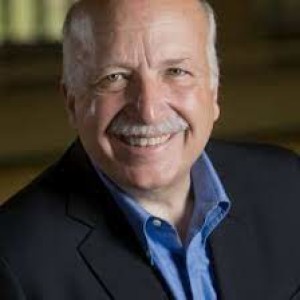
Tuesday Apr 27, 2021
Tuesday Apr 27, 2021
Show Notes and Links to Scott Ellsworth’s Work and Allusions/Texts from Episode 55
On Episode 55, Pete talks with Scott Ellsworth about the writing life, his interests and inspirations, and the incredible events and personalities that surround the famous “Secret Game” between the players of North Carolina College for Negroes and the white players of Duke University’s Medical School. Scott’s book on the subject is The Secret Game: A Wartime Story of Courage, Change, and Basketball's Lost Triumph.
The two also discuss the research and events surrounding the Tulsa Race Massacre and Scott’s highly-acclaimed book, set to come out on May 18, The Ground Breaking: An American City and Its Search for Justice.
Scott Ellsworth is the New York Times bestselling author of The Secret Game, winner of the 2016 PEN/ESPN Award for Literary Sports Writing. He has written about American history for The New York Times, The Washington Post, and the Los Angeles Times. Formerly a historian at the Smithsonian Institution, he is also the author of The World Beneath Their Feet and Death in a Promised Land, his groundbreaking account of the 1921 Tulsa race massacre. Scott lives in Ann Arbor, where he teaches in the Department of Afroamerican and African Studies at the University of Michigan.
"Scott Ellsworth's absolutely riveting book does more than chronicle the Tulsa Race massacre of 1921 and its literal exhumation. With a stunning combination of objectivity and empathy, it demonstrates how even in polarized times we can come together in pursuit of truth. Though concerned with past events, it explores every stratum of the American city now—from City Hall, to dive bars, to homeless encampments, to the living rooms of the wealthy and the poor, regardless of color or creed. Anyone interested in America's future should read it as a template for the reconciliation that lies ahead." —Tim Blake Nelson, actor, Watchmen and Just Mercy, and Tulsa native on The Ground Breaking: an American City and its Search for Justice
Buy The Ground Breaking: an American City and its Search for Justice (Out May 18)
Buy The Secret Game: A Wartime Story of Courage, Change, and Basketball's Lost Triumph
Book Review for The Secret Game: A Wartime Story of Courage, Change, and Basketball's Lost Triumph
“On MLK Day, recalling The Secret Game"-by Mark Adams, January 17. 2011, on Espn.com
At about 3:10, Scott talks about the lead up to the upcoming release of The Ground Breaking: An American City and Its Search for Justice on May 18 of this year
At about 4:30, Scott talks about his early days of writing and reading
At about 8:00, Scott talks about the texts and writers that have been given him “chills at will,” including A River Runs Through It, Their Eyes Were Watching God, among others, in line with his belief all literature is
At about 10:45, Scott relates an amusing anecdote about the great writer Zora Neale Hurston that is recounted in his book Secret Game, and Pete and Scott discuss Hurston’s interesting life and important work (including "How it Feels to be Colored Me")
At about 13:00, discussion about Aubrey from The Secret Game: A Wartime Story of Courage, Change, and Basketball's Lost Triumph leads to an overview of the historical events leading up to and including those of the book
At about 16:25, Scott talks about some of the important characters from the book, including Jack Burgess and his rude awakening to the ugly world of Jim Crow, and Dave Hubbell
At about 20:00, Scott talks about his thought process in using some of the obsolete and often-fraught racial terminology of the book’s time period
At about 21:55, Scott talks about Henry “Big Dog” Thomas, a memorable member of the North Carolina College for Negroes, and the moving late scene in the book where Big Dog asserts his pride and his independence
At about 24:00. Scott talks about how his research for the book and outside of the book, reminds him that there were so many “baby steps” in the civil rights movement, and how he hopes that he has honored them and shined a light on them
At about 25:00, Scott talks about some of the events that involved people from the book, like Aubrey Stanly and Pee Wee-events many years after “The Secret Game”
At about 27:25, Pete and Scott discuss the outsized impact of the legendary coach of North Carolina College for Negroes, John McLendon
At about 28:45, Scott discusses how he framed the narratives of Phog Allen and James Naismith and the research that connected them to John McLendon and “The Secret Game”; this also leads Scott to discuss the genesis of the book itself
At about 34:40, Scott ticks off the impressive list of firsts achieved by Coach John McLendon
At about 36:00, Pete and Scott talk about Scott’s incredible ability to connect seemingly disparate historical events in his writing
At about 36:35, Scott talks about the details of the famous “Secret Game” that the book chronicles
At about 40:30, Scott talks about the research done for the book, and how he was able to provide such a detail, including tracing a journey from the book by taking the bus himself
At about 42:30, Pete and Scott talk about the ways in which Jackie Robinson and other early “racial trailblazers”/HBCU athletes were often asked to “rise above” vitriolic and dehumanizing racism
At about 44:50, Scott talks about some of the aftereffects of the game and how he juxtaposed this effect with the racist killing of Booker T. Spicely
At about 47:50, Scott talks about the legacy of The Secret Game and its participants
At about 49:00, Scott talks about the Tulsa Race Massacre of 1921 and his 1982 book, Death in a Promised Land: The Tulsa Race Riot of 1921, including his connection to the great historian, John Hope Franklin
At about 52:00, Scott talks about the silences, both forced and not, that have led to an incomplete accounting of the death and destruction from the Tulsa Race Massacre; he also talks about how he is involved in efforts to do exhumations and studies into the deaths and circumstance from 1921 Tulsa
At about 53:30, Scott and Pete talk about the renewed interest in the massacre due to The Watchmen, Lovecraft Country, and the 100th anniversary, with Scott explaining why he has written a “sequel” of sorts to his 1982 book with 2021’s The Ground Breaking; a lot of the interest comes from Scott’s work on a commission to search for the mass graves of massacre victims
At about 57:20, Scott talks about reparations with regard to the massacre
At about 59:25, Scott reads a bit of Chapter One and the last part of The Afterword from The Secret Game...
At about 1:05:00, Scott talks about future projects and shouts out bookstores where you can buy his book-Fulton Street Books in Tulsa, Magic City Books in Tulsa
You can now subscribe to the podcast on Apple Podcasts, and leave a
five-star review. You can also ask for the podcast by name using Alexa, and find the pod on Spotify, Stitcher, and on Amazon Music. Follow me on IG, where I’m @chillsatwillpodcast, or on Twitter, where I’m @chillsatwillpo1.
This is a passion project, a DIY operation, and Pete would love for your help in promoting what I’m convinced is a unique and spirited look at an often-ignored art form.
The intro song for The Chills at Will Podcast is “Wind Down” (Instrumental Version), and the other song played on this episode was “Hoops” (Instrumental)” by Matt Weidauer, and both songs are used through ArchesAudio.com.
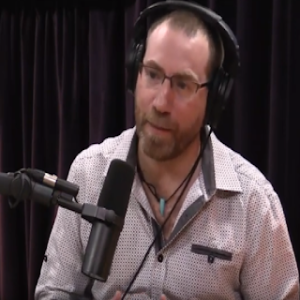
Tuesday Apr 20, 2021
Tuesday Apr 20, 2021
Show Notes and Links to Ioan Grillo’s Work and Allusions/Texts from Episode 54
On Episode 54, Pete talks with Ioan Grillo about his 20+years of reporting in Mexico and Latin America, and his three books on the regions. The conversation especially focuses on Ioan’s knowledge of gangs, cartels, and guns in Latin America and their connections to the United States’ loose and byzantine guns laws.
Ioan Grillo is a journalist and writer based in Mexico City, working for outlets including the New York Times, France 24 and National Geographic. He has been covering Latin America since 2001 for news media such as Time Magazine, Esquire, CNN, Reuters, Al Jazeera, The Houston Chronicle, The Associated Press, GlobalPost, France 24, The Sunday Telegraph, Letras Libres and many others. He is the author of the books Blood Gun Money: How America Arms Gangs and Cartels (2021), Gangster Warlords: Drug Dollars, Killing Fields and the New Politics of Latin America (2016), and El Narco: Inside Mexico’s Criminal Insurgency (2011).
A native of England, Grillo lives in Mexico City.
Buy Blood Gun Money: How America Arms Gangs and Cartels
Buy Gangster Warlords (Bookshop.org)
Ioan Grillo’s Amazon.com Author Page
Ioan Grillo’s Personal Website
First six minutes or so-Pete introduces Ioan Grillo, who talks about growing up in Brighton, England, and some of the literature and writers, like George Orwell, who inspired and challenged him
At about 6:00, Ioan talks about the type of stories that have interested him throughout the years and inspired his writing
At about 9:00, Ioan talks about his style of storytelling and its influences
At about 10:15, Ioan and Pete talk about George Orwell’s impact, particularly due to his essay “Shooting an Elephant” and Down and Out in Paris and London
At about 12:00, Ioan explains the term “fresa” as used in Mexico City and beyond
At about 13:30, Ioan talks about past and contemporary writers who have inspired, and continued to inspire him, including Ryszard Kapuściński, Jon Ronson, Yuval Harari, Nicholas Pileggi, Jesús Lemus, the exceptional staffers at El Faro, Javier Valdez, and Anabel Hernández.
At about 19:15, Pete recommends the incredible read from Roberto Lovato, Unforgetting
At about 19:40, Ioan describes his beginnings writing in Mexico, and eventually covering the world of drug trafficking and the “narcocultura”
At about 25:30, Ioan talks about La Familia Michoacana, as discussed in Gangster Warlords and El Narco
At about 27:30, Ioan talks about the connection between the PRI losing power and the explosive growth of drug cartel violence
At about 32:00, Ioan talks about what he aims for in documenting real-life stories of criminals and victims
At about 34:30, Ioan talks about managing his mental health after experiencing and writing about so many sad stories and atrocities
At about 41:00, Ioan talks about the four groups who are the focus of Gangster Warlords: México’s La Familia Michoacana, Central America's Mara Salvatrucha, Jamaica's Shower Posse, and Brazil's Red Commando
At about 42:30, Ioan talks about the circumstances involving government, or lack thereof, that leads to incredible displays of humanity and criminal enterprises
At about 46:40, Ioan talks about his most recent book, and how the book starts with him connecting the New York Él Chapo trial to the flow of illegal guns from the U.S. to Mexico
At about 49:30, Ioan talks about basic enforcement techniques that aren’t being enforced with regards to gun laws
At about 51:00, Ioan talks about the tragic death of Jaime Zapata, and how he traced the guns used to kill him, and this search’s connection to the history of the recent arms race
At about 57:15, Ioan talks about the incredibly low-tech National Tracing Center for guns in West Virginia
At about 1:00:55, Ioan talks about universal background checks and other simple ways in which to cut down on gun violence, before even dealing with the tensions around The Second Amendment
At about 1:05:30, Pete asks Ioan what beliefs there are in Mexico about the amount of responsibility/blame that the U.S. has involving drugs and guns
At about 1:07:40, Ioan reads from page 344-towards the end of Guns Blood Money… and the gun museum described as a microcosm/symbol of a hopefully brighter future with much less violence
At about 1:10:00, Ioan talks about upcoming projects
You can now subscribe to the podcast on Apple Podcasts, and leave me a
five-star review. You can also ask for the podcast by name using Alexa, and find the pod on Spotify, Stitcher, and on Amazon Music. Follow me on IG, where I’m @chillsatwillpodcast, or on Twitter, where I’m @chillsatwillpo1.
This is a passion project of mine, a DIY operation, and I’d love for your help in promoting what I’m convinced is a unique and spirited look at an often-ignored art form.
The intro song for The Chills at Will Podcast is “Wind Down” (Instrumental Version), and the other song played on this episode was “Hoops” (Instrumental)” by Matt Weidauer, and both songs are used through ArchesAudio.com.
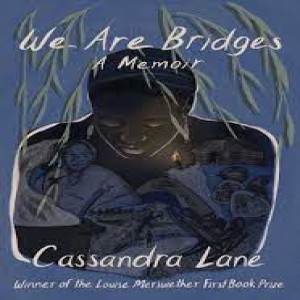
Tuesday Apr 13, 2021
Tuesday Apr 13, 2021
Show Notes and Links to Cassandra Lane’s Work and Allusions/Texts from Episode 53
On Episode 53, Pete talks with Cassandra Lane about her journalism career, her literary sparks and heroes, and finding inspiration in her family’s history and beautiful and traumatic events. Cassandra reads an excerpt from her upcoming memoir, We are Bridges: A Memoir, while discussing the stories and background that make up the book.
Born and raised in Louisiana, Editor in Chief Cassandra Lane made the transition from La. to L.A. in 2001. She was most recently community relations manager for the Los Angeles Dodgers, where she learned to cheer on her team like a real Angeleno. Cassandra has also served as a newspaper reporter, high school English and journalism teacher, college application advisor and senior writer for a nonprofit committed to improving the quality of early care and education for L.A. County children. She and her husband are having fun raising their son, who currently wants to be an astrophysicist, artist and video game developer. She has a BA in Journalism and an MFA in Creative Writing from Antioch University. Her writings have appeared in a number of publications and We are Bridges, A Memoir is set to be published on April 20 of this year.
You can now subscribe to the podcast on Apple Podcasts, and leave me a five-star review. You can also ask for the podcast by name using Alexa, and find the pod on Spotify, Stitcher, and on Amazon Music. You can also find episodes on The Chills at Will Podcast YouTube Channel. Follow me on IG, where I’m @chillsatwillpodcast, or on Twitter, where I’m @chillsatwillpo1.
This is a passion project of mine, a DIY operation, and I’d love for your help in promoting what I’m convinced is a unique and spirited look at an often-ignored art form.
The intro song for The Chills at Will Podcast is “Wind Down” (Instrumental Version), and the other song played on this episode was “Hoops” (Instrumental)” by Matt Weidauer, and both songs are used through ArchesAudio.com.
At about 2:00, Cassandra talks about the busy and exciting time leading up to the publication on April 20 of this year of her memoir, We are Bridges
At about 3:45, Cassandra talks about her childhood love of reading, and how her family influenced her
At about 6:15, Cassandra talks about the influence of her uncle, a preacher, and how her childhood was influenced by the Bible as a literary and religious text
At about 7:50, Cassandra talks about writers who gave her “chills at will”
At about 8:40, Cassandra talks about the “revelatory” texts that affirmed her desire to be a writer, especially James Baldwin’s Go Tell It on the Mountain and Toni Morrison’s Song of Solomon
At about 10:30, Cassandra talks about when she gained the “sense of empowerment” to imagine herself as a writer, as well as how this spurred her on to working in journalism
At about 13:25, Cassandra talks about inspiring contemporary writers, such as Jesmyn Ward, Sharon Olds, Terrence Hayes, mentor Kalamu ya Salaam,
At about 15:50, Cassandra talks about texts that spoke to her high school students when she was a classroom teacher at traditional schools and alternative high schools
At about 18:50, Cassandra talks about getting kids to read in new and exciting
At about 20:10, Cassandra talks about her work with LA Parent Magazine
At about 26:00, Cassandra talks about her short pieces, some which figured directly in her upcoming memoir, including “The Seeker and the Artist”
At about 32:00, Cassandra talks about writing about personal/familial experiences
At about 33:40, Cassandra talks about “White Oak,” a fictional piece in which she memorializes the tragic lynching of her great-grandfather, Burt, and which has become part of We are Bridges
At about 36:00, Cassandra talks about her great-grandmother, Mary, and how her story informed Cassandra’s life and her writing, as well as how Billie Holiday’s “Strange Fruit” impacted Cassandra
At about 40:00, Cassandra talks about the connections between 1904 to 2021 and the generations in-between
At about 41:20, Cassandra talks about the “scars” and the “silence around the scars” in dealing with generational trauma in the process of healing
At about 42:20, Cassandra talks about the pre publication press and blurbs for We are Bridges
At about 43:30, Cassandra talks about the beginnings of the book, around 2001 at Antioch University
At about 47:00, Cassandra reads an excerpt from We are Bridges: A Memoir
At about 51:40, Cassandra talks about future projects
Buy We are Bridges: A Memoir on Bookshop.org! (Comes out April 20)
Buy We are Bridges: A Memoir on Amazon.com
Buy We are Bridges: A Memoir at Eso Won Books in Los Angeles
Read Cassandra’s short fiction and nonfiction on her website

Friday Apr 09, 2021
"Writing on the Wall" by The Philharmonik-World Premiere
Friday Apr 09, 2021
Friday Apr 09, 2021
The Chills at Will Podcast has the world premiere of The Philharmonik’s “Writing on the Wall." The song is from The Philharmonik’s album, dropping July 26, 2021.
You can hear Pete's conversation with The Philharmonik on Episode 52 of The Chills at Will Podcast, available on Apple Podcasts, Spotify, Stitcher, Amazon Music, and by asking Alexa.
The Philharmonik is known for his electrifying live performances at Sol Collective, Harlow’s, The Tree Tone Records, OnTheBlock Party and at various venues in the Northern California area. In 2019, he went on his first national tour, opening for Hobo Johnson and Lovemakers alongside Nate Curry and Mom Jeans.
He is a talented and reflective lyricist, and an incredible musician, and Pete enjoyed the heck out of the conversation.

Friday Apr 09, 2021
Friday Apr 09, 2021
The Philharmonik is an American hip hop, future soul R & B recording artist, and producer from Sacramento, California.
The Philharmonik debuted in 2018 with the album “The Philharmonik.” His album includes feature songs like “Neon Lights”, “Mama’s House (feat. Hobo Johnson), “Pay me” and “Good Day” offer a variety of styles which appeal to a wide audience base. Hi album was released under Sol Collective’s record label shortly after his winter 2016 video release of Mama’s House.” The Philharmonik remains an independent artist.
The Philharmonik’s musical beginnings started in Cleveland, Ohio where he was born. He began taking classical piano at the age of 5 after he attended a concert with his mom. When he returned home from the concert he began to play songs he heard note for note. His family signed him up for piano lessons with a teacherwho played for the Cleveland Orchestra and thus his training began.
The Philharmonik was inspired by the great legends in music early on, as it was not uncommon to hear the likes of Bach, Beethoven, Stevie Wonder, Jimi Hendrix, Bob Dylan Michael Jackson, Lou Armstrong, Ella Fitzgerald, Earth, Wind & Fire, Ozzy Osbourne, The Eagles, Eric Clapton, Queen, Led Zeppelin, Santana, The Beatles and a few hundred other artists playing around the house. Composers such as Hans Zimmer and James Horner and country music artists Willie Nelson & Johnny Cash, were on the list.
The Philharmonik even participated in a community choir and church choir. Cutting his mom’s dreams short, The Philharmonik ended his participation when he could no longer hold back the rhythm in his soul set afire after he discovered hip-hop. His Hip-Hop and R&B Artist inspirations include Kanye West, The Roots, Outkast, Lauryn Hill, Erykah Badu, India Arie, Alicia Keys, Common and Chance the Rapper just to name a few.
The Philharmonik is known for his electrifying live performances at Sol Collective, Harlow’s, The Tree Tone Records, OnTheBlock Party and at various venues in the Northern California area. In 2019, he went on his first national tour, opening for Hobo Johnson and Lovemakers alongside Nate Curry and Mom Jeans.
Links to The Philharmonik’s Work and Allusions/References Made in the Episode
At about 4:15, Christian/The Philharmonik discusses his early influences in music, including his first exposure to hip hop
At about 5:30, Christian talks about being “classically-trained”
At about 8:15, Christian talks about the formative power of Parliament in his life and music
At about 11:30, Christian talks about Cleveland and Sacramento’s entertainment scenes and how they have influenced him and his music
At about 14:00, Christian talks about writers who inspired him in his music journey, especially hip hop artists and hip hop’s lyrical influence on him
At about 16:25, Christian talks about his reading habits and educational philosophy in using his “mind [as a] weapon”
At about 17:10, Christian discusses the background and meaning of “The Philharmonik”
At about 18:30, Christian discusses her early performing practice and his first performance in 2015
At about 21:00, Christian talks about what current musicians inspire him
At about 23:10, Christian talks about non-musical inspirations, including philosophy that inspires reflection
At about 24:00, Christian talks about his writing process
At about 27:45, Christian talks about “ownership of songs” and collaboration and how it feels to have listeners react to his music in different ways
At about 29:40, Christian talks about his nationwide tour in 2019/2020
At about 32:00, Christian talks about his incredibly memorable-he describes it as “a magical moment”-performances with the legendary Sway (Calloway) and its lasting effects on him
At about 38:45, Christian talks about his self-titled 2018 album, including his hit song “Mamá’s House” with Hobo Johnson, “Self Love,” and “Good Day”
At about 43:45, Christian talks about the powerful and moving song “20 Rounds,” talking about the police murder of Stephon Clark in 2018 in Sacramento
At about 53:05, Christian talks about the ugly repetitiveness of, and lack of learning from, American history and his thoughts on writing “political” songs
At about 58:55, Christian talks about the July 26, 2021, release date for his upcoming album!
You can now subscribe to the podcast on Apple Podcasts, and leave me a five-star review. You can also ask for the podcast by name using Alexa, and find the pod on Stitcher, Spotify, and on Amazon Music. Follow me on IG, where I’m @chillsatwillpodcast, or on Twitter, where I’m @chillsatwillpo1.
This is a passion project of mine, a DIY operation, and I’d love for your help in promoting what I’m convinced is a unique and spirited look at an often-ignored art form.
The intro song for The Chills at Will Podcast is “Wind Down” (Instrumental Version), and the other song played on this episode was “Hoops” (Instrumental)” by Matt Weidauer, and both songs are used through ArchesAudio.com.
The Chills at Will Podcast has the world premiere of The Philharmonik’s “Writing on the Wall” tonight (Friday, April 9, at 8pm EST)! You can find the song on The Chills at Will Podcast Youtube Channel and at the podcast’s hub on Apple Podcasts and Spotify. The song is from The Philharmonik’s July 26 album.
